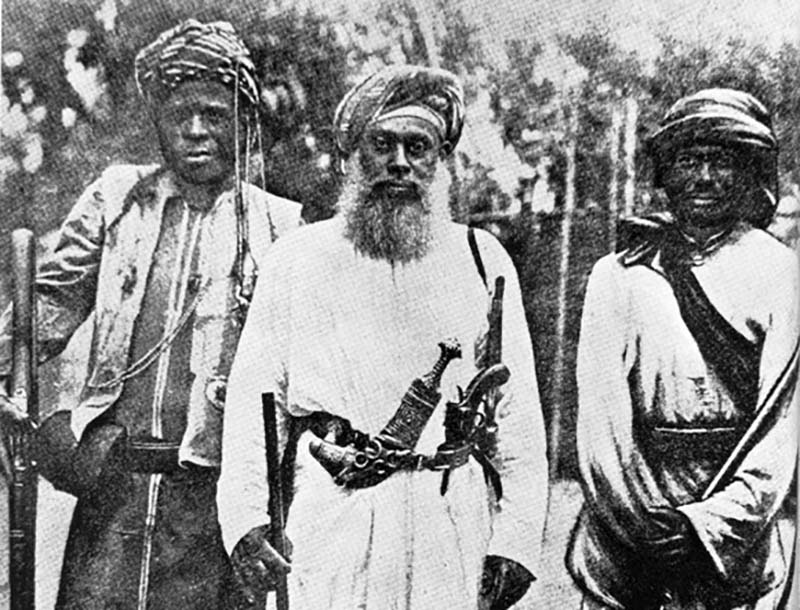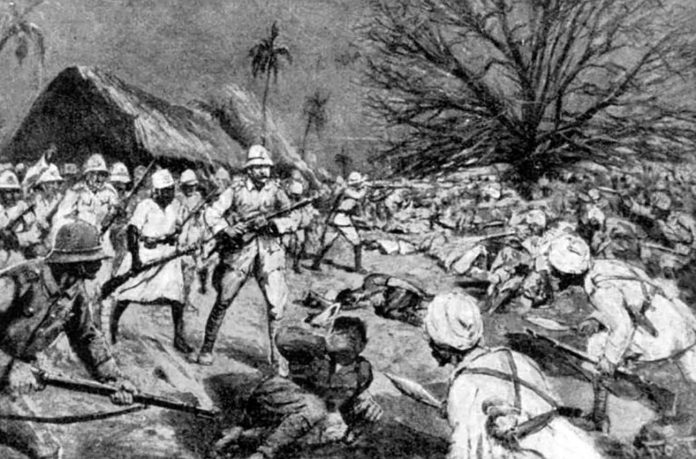Abushiri Revolt – Background, Events and More
The Abushiri revolt was an insurgency led by the Arab and Swahili populations of the East African coastlands that were surrendered to Germany under protest in 1888 by the Sultan of Zanzibar. A German invading force that controlled the coastal region finally put an end to it.
Abushiri Revolt Background
In late 1884, a Society for German Colonization expedition commanded by Carl Peters arrived in Zanzibar and forced local leaders on the mainland to sign “protection contracts” pledging enormous swathes of land to his organization. Peters’ new German East Africa Company bought further territories in Tanganyika up to the Usambara and Uluguru Mountains after it had established a footing. Sultan Barghash bin Said of Zanzibar objected, but he was forced to concede when Peters received formal backing from the Foreign Office in Berlin and a fleet of the Kaiserliche Marine led by Konteradmiral Eduard von Knorr arrived off the coast of Zanzibar. On April 28, 1888, Sultan Khalifah bin Said signed a contract giving the German East Africa Company control of the Tanganyika mainland.
The organization attempted to take over the coastal cities of Tanganyika in August 1888 but was met with violent opposition from the Arab elite, who feared for their ivory and slave trade, as well as the indigenous populace. The insurrection began when the German administrator in Pangani, Emil von Zelewski, attempted to hoist the company’s flag over the city.
Events That Happened During the Abushiri Rebellion
Abushiri Revolt was commanded by the planter Abushirii ibn Saalim al-Harthi (also known as Abushiri bin Salim), who had backing from both Arabs and Swahili clans in the region. Abushiri was born to an Arab father and an Oromo mother. From Lindi and Mikindani in the south to Tanga in the north, the insurrection quickly spread down the coast. Except for the enterprises in Bagamoyo and Dar es Salaam, German East Africa Company representatives were evicted or murdered.

Lieutenant Hermann Wissmann was named Reichskommissar of German East Africa by German Chancellor Otto von Bismarck in February 1889. Wissmann gathered a Schutztruppe of German commanders and African askari troops in Egypt and Mozambique, who later repressed the insurrection with the help of the navy.
Betrayal
Abushiri was betrayed and captured by the Germans on his way to Mombasa in December 1889 and was condemned to death in a court-martial and publicly hung in Pangani. The German East Africa Company was required to pass up Tanganyika’s administration to the German government under an agreement signed on November 20, 1890. Wissmann was not able to report to Berlin that the revolt had been completely subdued until early 1891.
For more articles related to Tanganyika, click here!

































